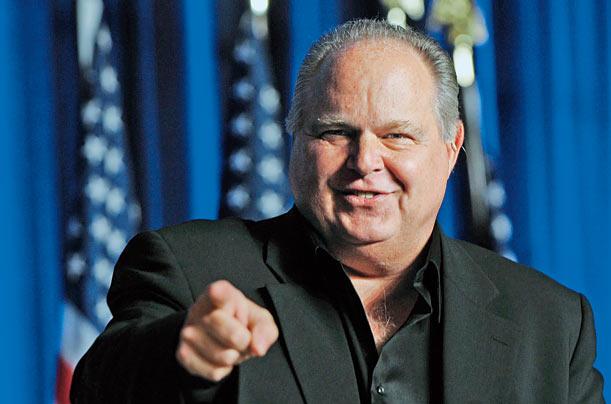
Sooner or later, most administrations make some version of the Sun King's mistake. "L'état, c'est moi," Louis XIV of France is said to have declared — "I am the state." To criticize becomes downright unpatriotic.
White House press secretary Robert Gibbs crept up to that line — even put his toe over — as he tried to capitalize on the anti-Obama declarations of talk-show leviathan Rush Limbaugh. In January and again at a recent gathering of conservatives in Washington, Limbaugh pointedly voiced his hopes that Barack Obama's economic proposals will fail.
Limbaugh is hardly the only American with doubts. A poll by the Wall Street Journal and NBC News found that even in a country largely supportive of Obama, most voters remain skeptical of his stimulus plan. Nevertheless, Democrats scampered to make Limbaugh the official mouthpiece for the rest of the Republican Party. "Do they want to see the President's economic agenda fail?" Gibbs asked reporters. Michael Steele, the new GOP chairman, rushed to say no. Limbaugh, Steele said, is "an entertainer" given to "incendiary" and "ugly" overstatements. Like party leaders before him, however, Steele soon apologized to the man who claims 20 million listeners.
Gibbs' Sun King moment came when he construed Limbaugh's opposition as "wishing and hoping for economic failure in this country" — not just anti-Obama but anti-American. In a time of crisis, the line between President and nation can be thin. And Limbaugh's defense — "What is so strange about being honest?" — sat awkwardly alongside his apoplectic reaction to Democratic criticisms of George W. Bush.
But the words of Theodore Roosevelt, issued in the midst of a world war, may still be apt in our present troubles. "To announce that there must be no criticism of the President, or that we are to stand by the President, right or wrong, is not only unpatriotic and servile but is morally treasonable to the American public." Roosevelt said this, of course, when he was no longer President.